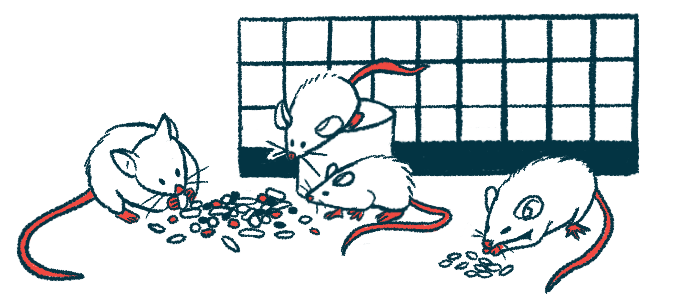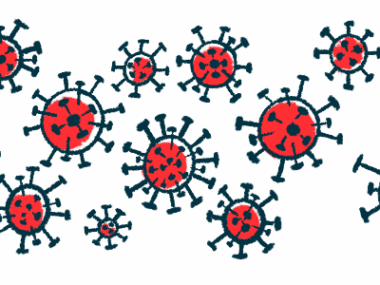Milk-derived particles may offer treatment path for SSc fibrosis
Mouse study shows the tiny natural particles reduced inflammation
Written by |

Milk-derived extracellular vesicles — very small, natural particles from cow’s milk — were shown to safely reduce inflammation and scarring in a mouse model of systemic sclerosis (SSc).
Because these vesicles carry molecules that can protect and help tissue repair itself, they “have attracted much attention due to their high yield, easy availability, and high content, which endows them with great potential for clinical applications,” the researchers wrote.
The study, “Blockade of TGF-[beta]1/Smad3 signaling pathway by bovine milk-derived extracellular vesicles ameliorates skin fibrosis in systemic sclerosis mice,” was published in Biochemical and Biophysical Research Communications by scientists in China.
Scleroderma occurs when the immune system prompts the body to make an excess of collagen that thickens and hardens the skin and internal organs. In scleroderma, the connective tissue becomes stiffened and swollen.
The challenge of SSc and fibrosis
Over time, the excessive production of collagen can result in fibrosis, or scarring, that can harm internal organs. Because current treatment options for scleroderma are limited, the researchers explored whether milk-derived extracellular vesicles might help.
The team collected the vesicles from pure, fresh cow milk and tested them in a mouse model of SSc caused by bleomycin, a chemotherapy drug that triggers fibrosis. Under a microscope, the vesicles appeared as round, cup-shaped structures with a fatty outer layer.
The skin on the back of the mice became thick, hard, and less flexible, with delayed recovery after stretching. Treatment with the milk-derived extracellular vesicles eased these symptoms, partially restoring the skin’s structure.
The vesicles also reduced the production of collagen and inflammatory proteins. There was also a reduction in TGF-beta1, a signaling molecule that contributes to fibrosis.
TGF-beta1 works by activating fibroblasts — the cells that produce collagen in the connective tissue. When TGF-beta1 is active, it turns on Smad3, a protein that moves into the cell’s nucleus and triggers the production of more collagen.
In lab-grown cells, milk-derived extracellular vesicles interfered with this mechanism. They blocked TGF-beta1’s ability to turn on Smad3, stopping it from moving into the nucleus. By reducing the production of collagen, the vesicles may turn off the molecular cues that signal fibrosis.
Since the vesicles are natural and already part of the human diet, they are considered biocompatible, or safe for the body. They also showed “commercial viability for biomedical applications,” the team wrote.
The exact mechanism of action of milk-derived extracellular vesicles is still unknown and “remains to be further investigated,” the researchers added. Still, they noted the vesicles “could be a safe and effective material that shows potential as a drug candidate for SSc clinical trials.”






